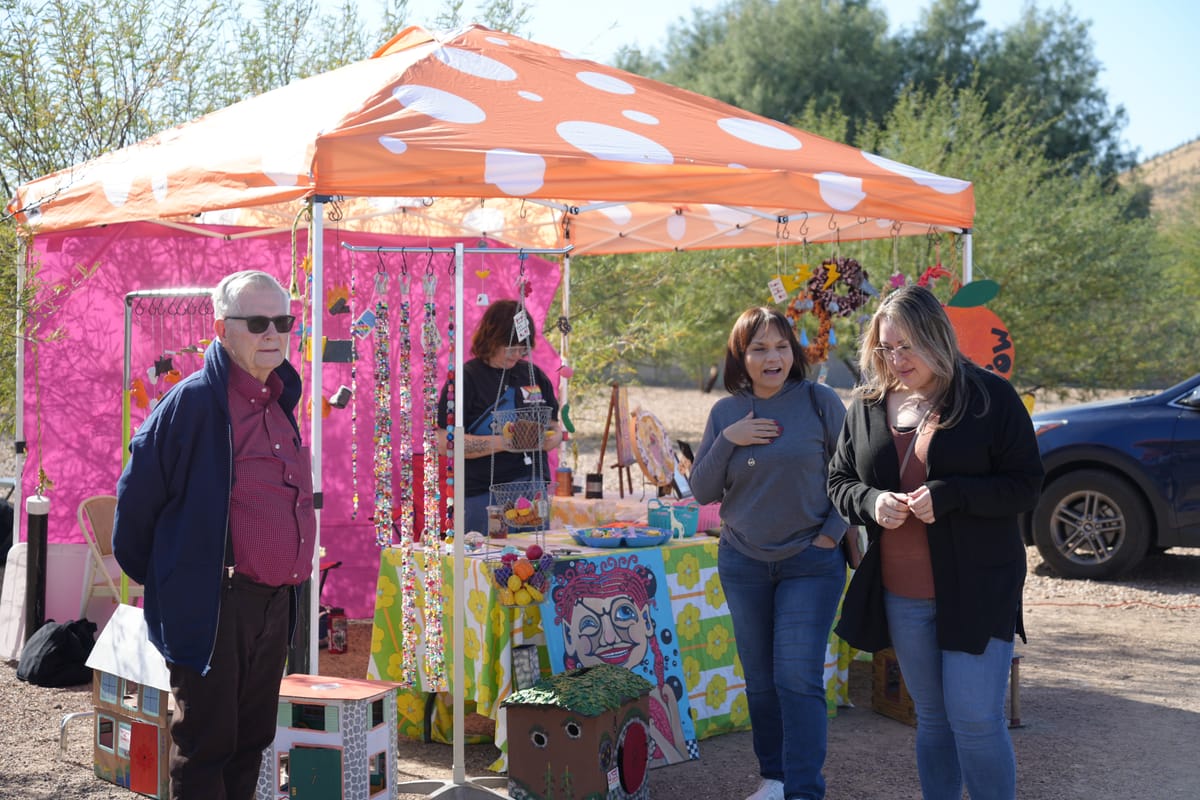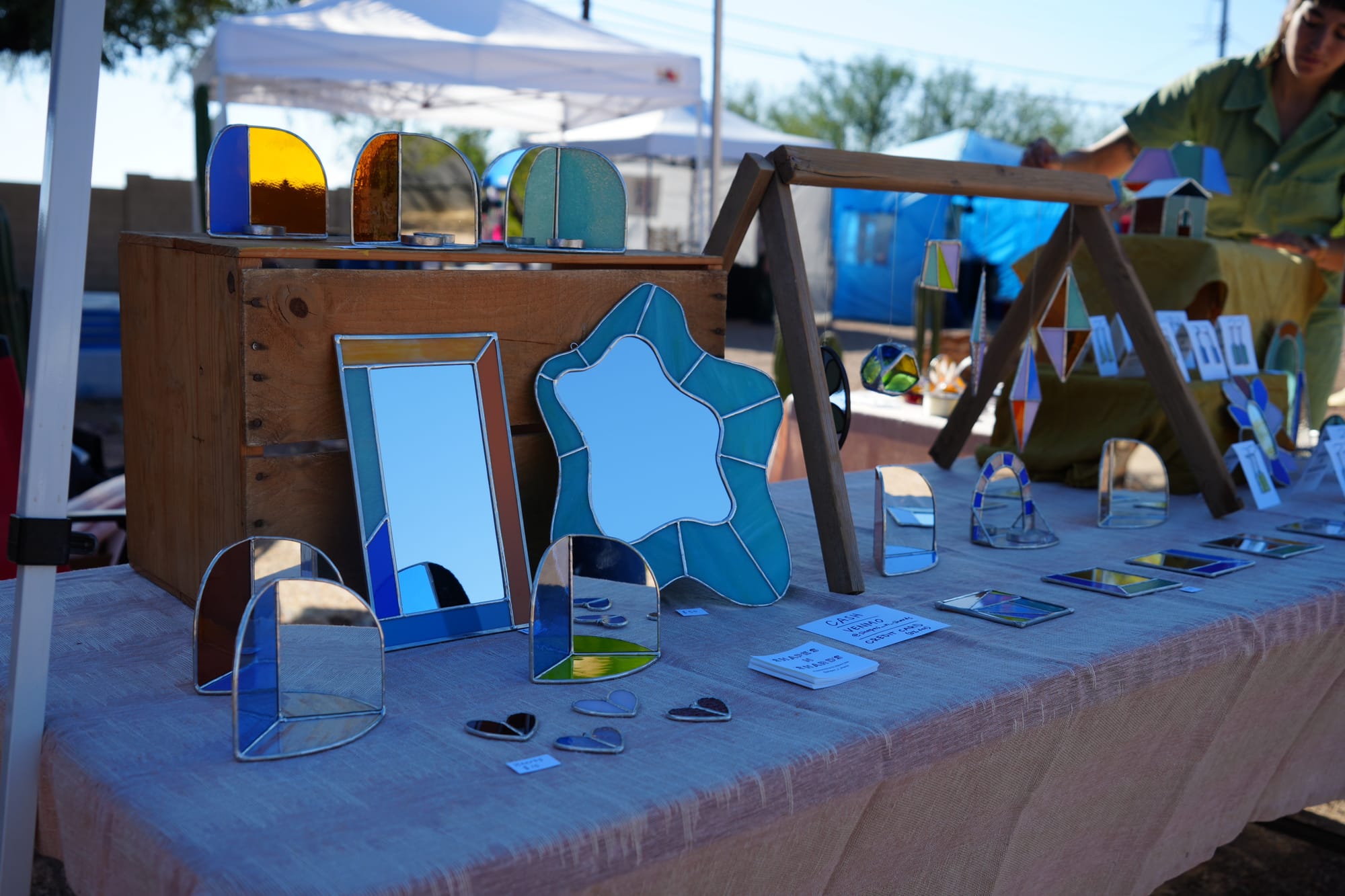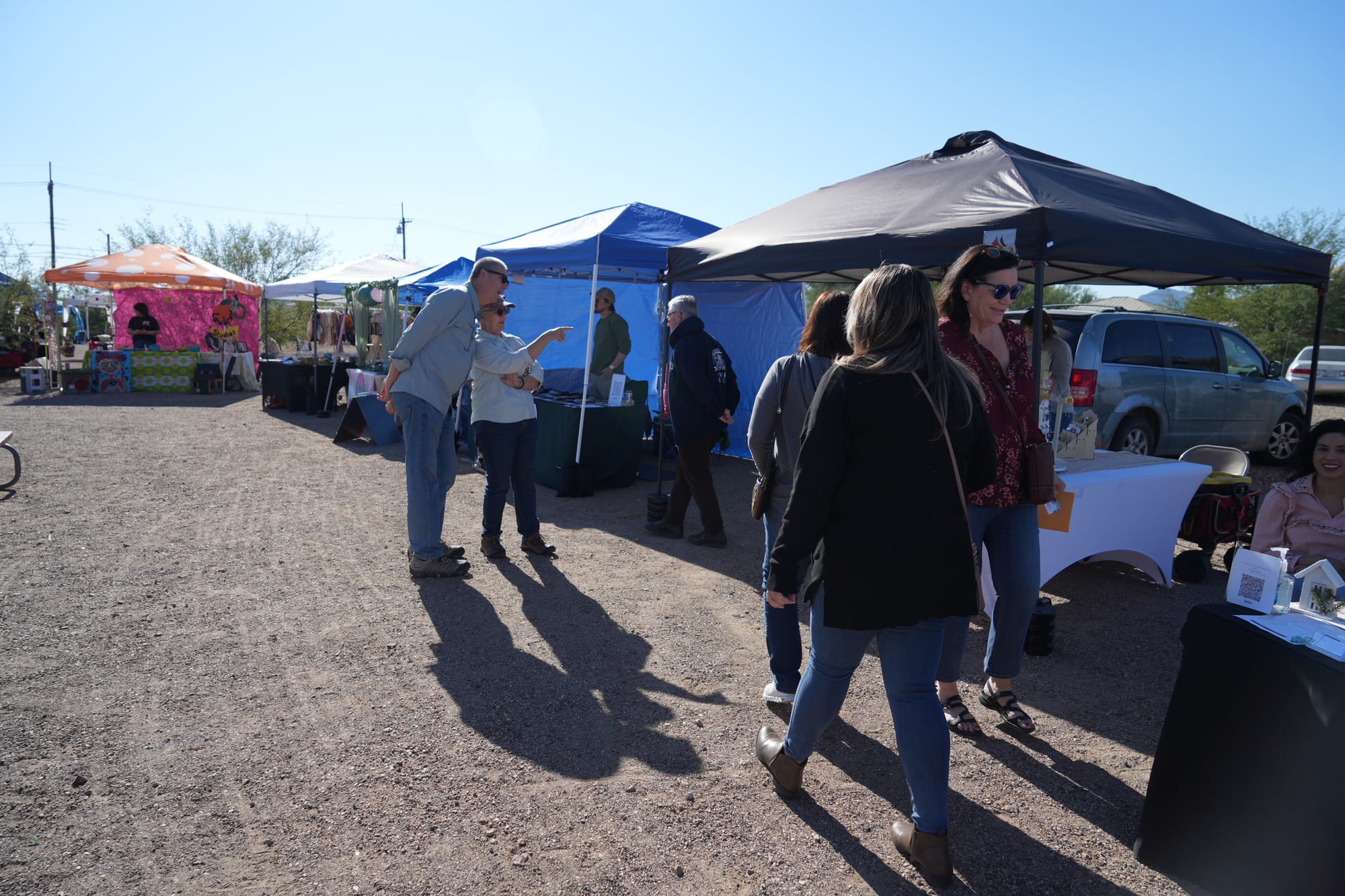Makers markets boost local economy and community in Southern Arizona
Many of Tucson’s makers markets are open to vendors of all types and skill levels, instead of just professional artists. During the Tuxon’s recent makers market, several first-time vendors were on site, trying their luck with holiday shoppers.

Makers markets are on the rise in Southern Arizona, showcasing the creativity, community and pride of local artists, bakers and craft enthusiasts.
These markets feature locally handcrafted art, crafts, food and bath products, giving both creators and shoppers a way to celebrate the city’s unique cultural identity.
But beyond the colorful stalls and artisanal treasures, makers markets serve as vital contributors to Tucson’s economy, reinforcing the power of shopping local.
Shopping at makers markets directly supports local artisans and small business owners, keeping money circulating within the community, said Cyn McManus, organizer of the Makers Market at the Tuxon Hotel.
“It offers a space for … artists, to be within the community, showing people what they do. But also, this is the kind of stuff that keeps dollars in our community. The more that you spend at Target and Costco and Amazon, while you're spending it in your community, it's going outside of the city. It's not staying here,” McManus told Tucson Spotlight. “But when you're shopping small and supporting local businesses, that money stays here.”
These markets also help keep resources local and sustainable, she said.
Many of Tucson’s makers markets are open to vendors of all types and skill levels, instead of just professional artists. During the Tuxon’s recent makers market, several first-time vendors were on site, trying their luck with holiday shoppers.
“I've had 16-year-olds who are still in high school, who have come and done the market, trying to sell their art and stuff, and it's gone really well, McManus said. “It really is a market for the community.”

Makers markets also help foster a sense of belonging that’s often missing in traditional retail settings, meaning that supporting local makers isn’t just good for the economy, it also benefits the emotional wellbeing of a community's residents.
When shoppers purchase from local artists, they’re investing in stories, craftsmanship, and authenticity, McManus said. This creates a sense of fulfillment that’s hard to replicate in a big-box store. Alternatively, even if no money is exchanged between an artisan and a customer, the interaction alone is currency in and of itself, she said.
“Shop local. And if you can't spend money, share it online,” McManus said. “Tell somebody, ‘Hey, I really like this thing.’ That’s one of the higher forms of support. Just some little bit of positivity that you can give is super awesome for all of these small business owners and artists.”
In 2018, the Historic 4th Avenue Coalition launched the biannual Made in Tucson Market to help highlight Tucson’s avenue of small businesses and the local makers whose wares are featured in those stores.
“The market is something we have been wanting to do for almost 20 years,” said Historic 4th Avenue Coalition President Shannon Riggs, a member of the Made in Tucson Market planning committee and local business owner. “It started out really small, it was just in a parking lot and we had about 30 vendors.”
It’s grown to more than 300 artists and vendors, and with thousands of attendees, has become one of Tucson’s most popular outdoor shopping events.
DeeDee Koenen, a local maker and Made in Tucson Market committee member, has seen firsthand the transformative power of these markets.
Koenen co-owns Pop-Cycle, a 4th Avenue store specializing in eco-friendly art and goods, with Riggs.
"At PopCycle, we are very small and can only accommodate so much," she says. "We have 90 local artists under one roof, but there are so many makers out there. We really wanted to have an opportunity for people who contacted us who couldn't be in the store."

Koenen believes these events are more than just a chance to shop for unique, handmade items.
"It really plays a big role even though it seems like it's just a market, but it's actually very economically important for folks,” she said. “I've seen makers do their first market, and then a couple years later, they’re opening their own brick and mortar.”
Makers markets help full-time artists showcase their talents, earn income, and build connections.
But more importantly, artists who still have other jobs or responsibilities can use these markets to sustain and fund their art, which is a constant struggle for most artists, including Koenen.
“We make things for Pop-Cycle, so we know what it's like to be a maker, and sometimes these markets help give you cash flow so you can make it,” she said. “If you do two a year, they give you that little cushion so you can make it through the rest of the year.”
That sense of community makers markets help create is almost as important as the financial benefits, Koenen said.
"As artists, we know that the best resource is other artists,” she said. “It gives people the chance to talk about things, even things that are just silly and mundane, but it makes running a business easier."
Samantha Callicutt is a Tucson Spotlight reporter and graduate student at the University of Arizona. Contact her at Scallicutt@arizona.edu.
Tucson Spotlight is a community-based newsroom that provides paid opportunities for students and rising journalists in Southern Arizona. Please support our work with a paid subscription.



